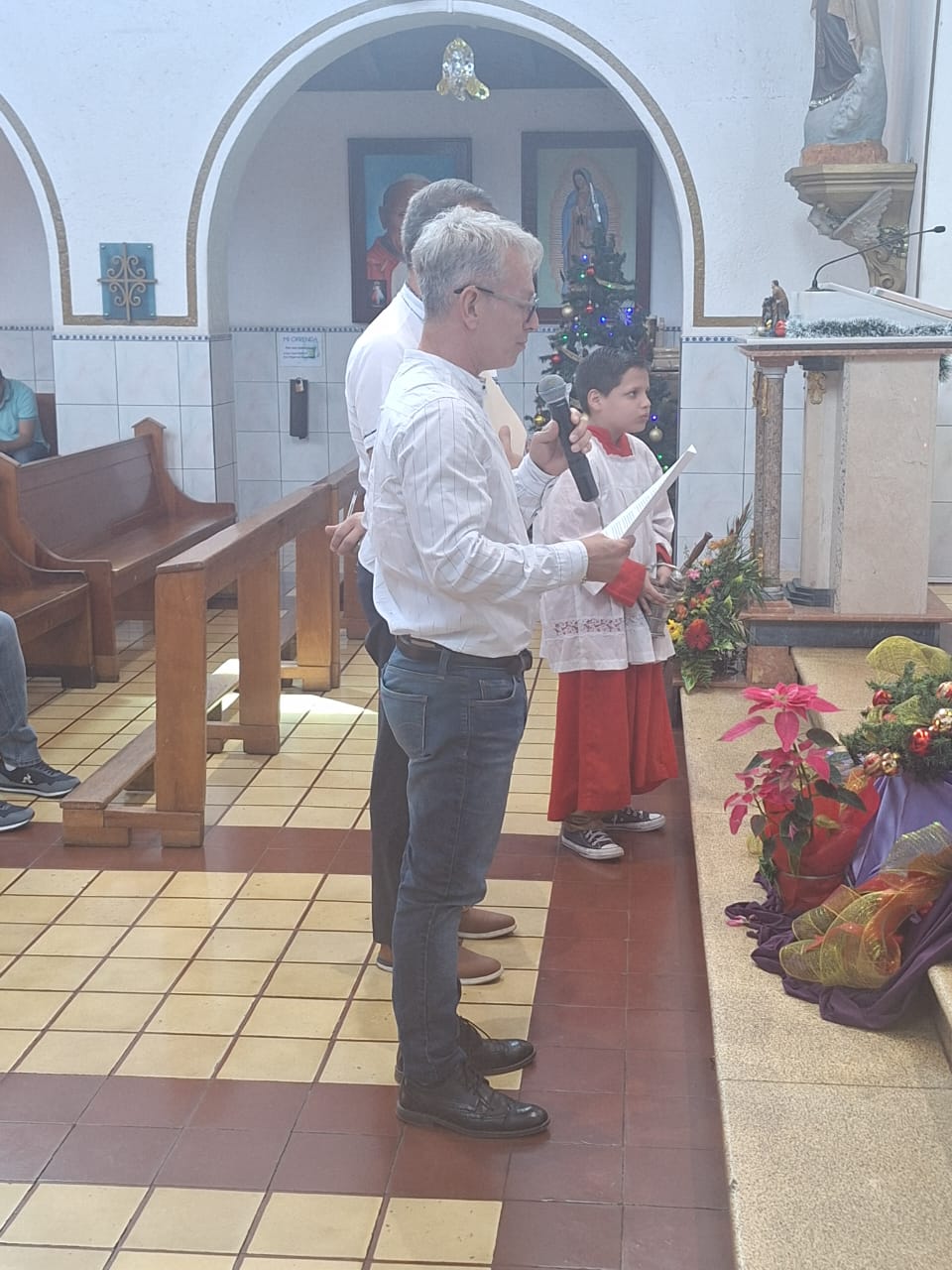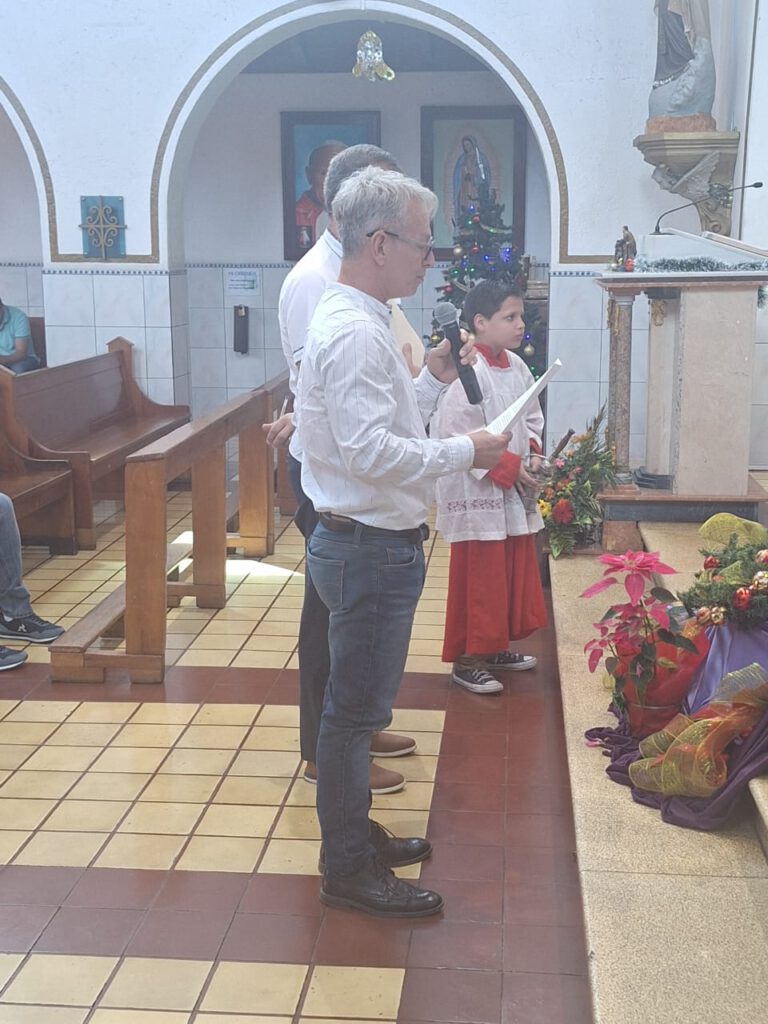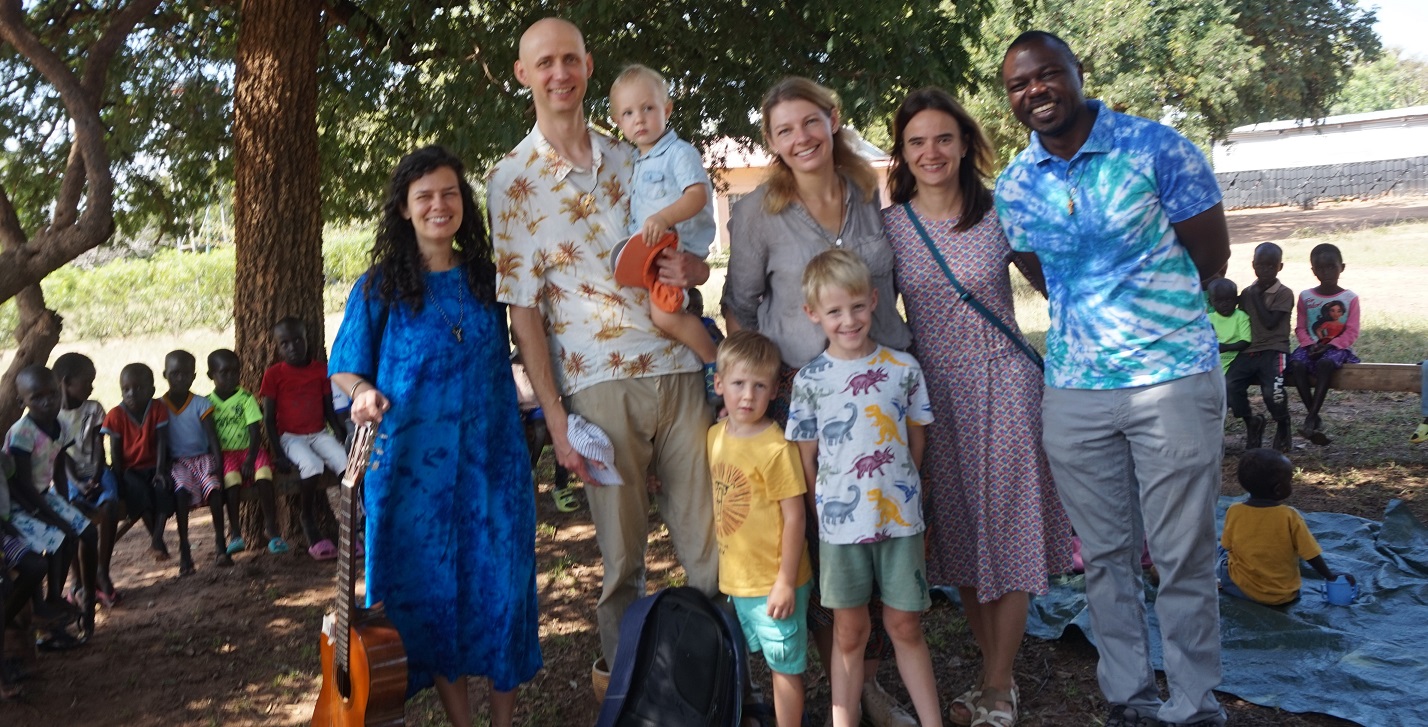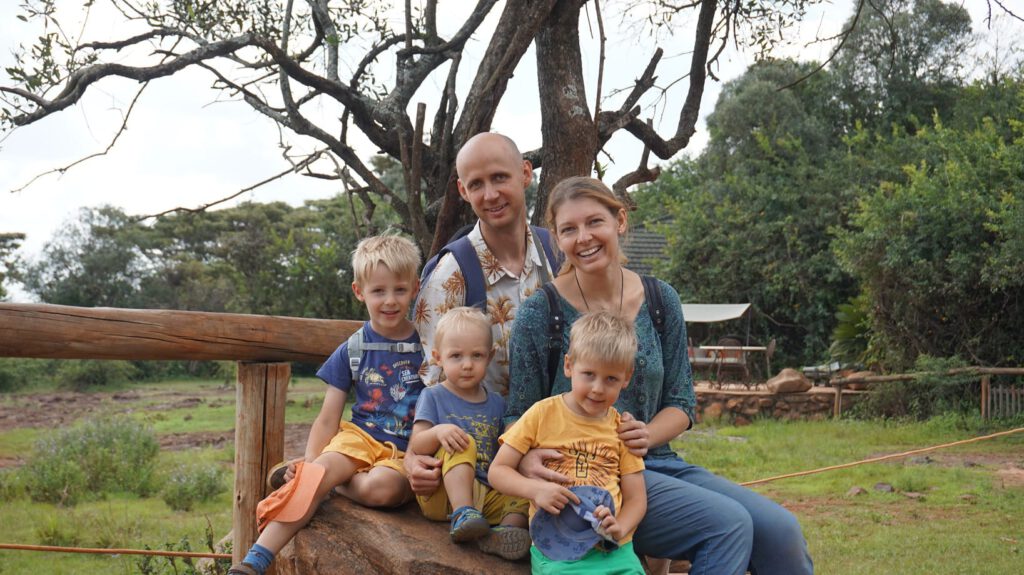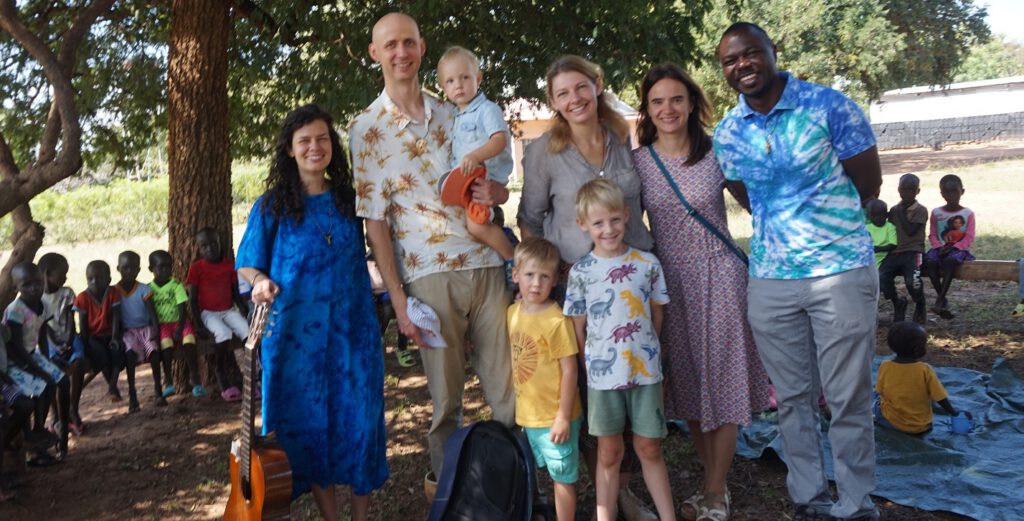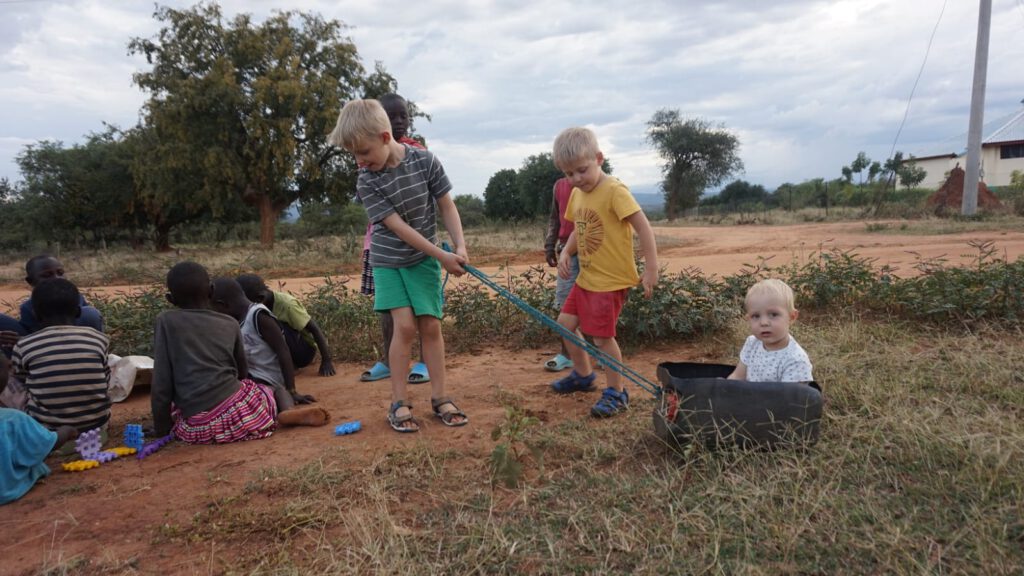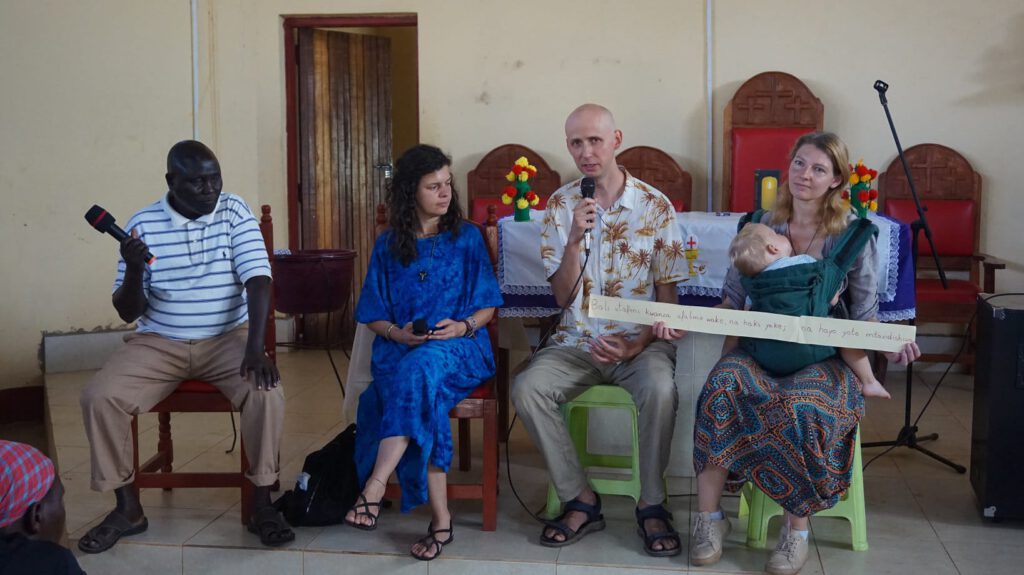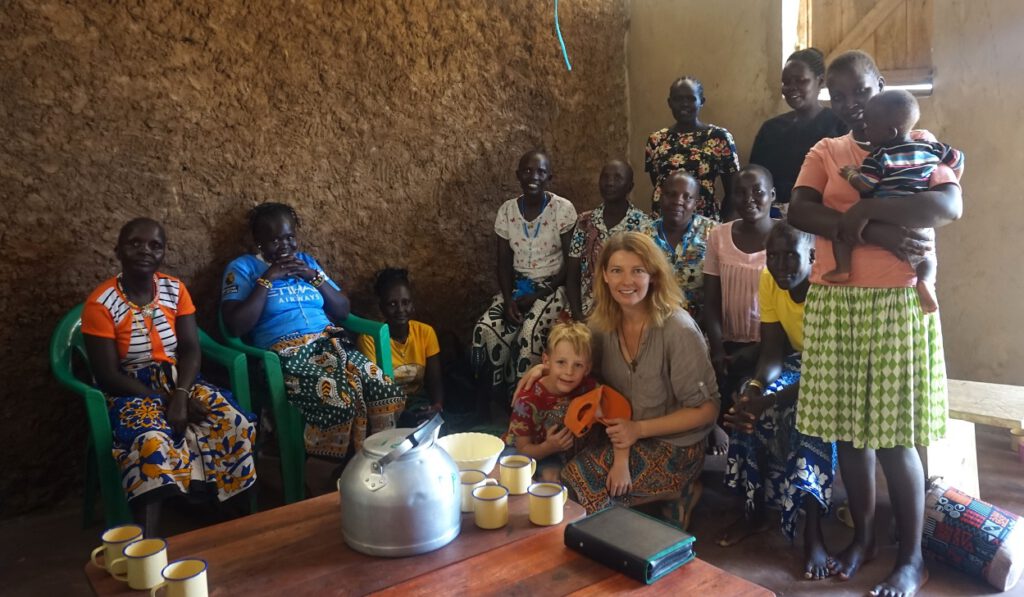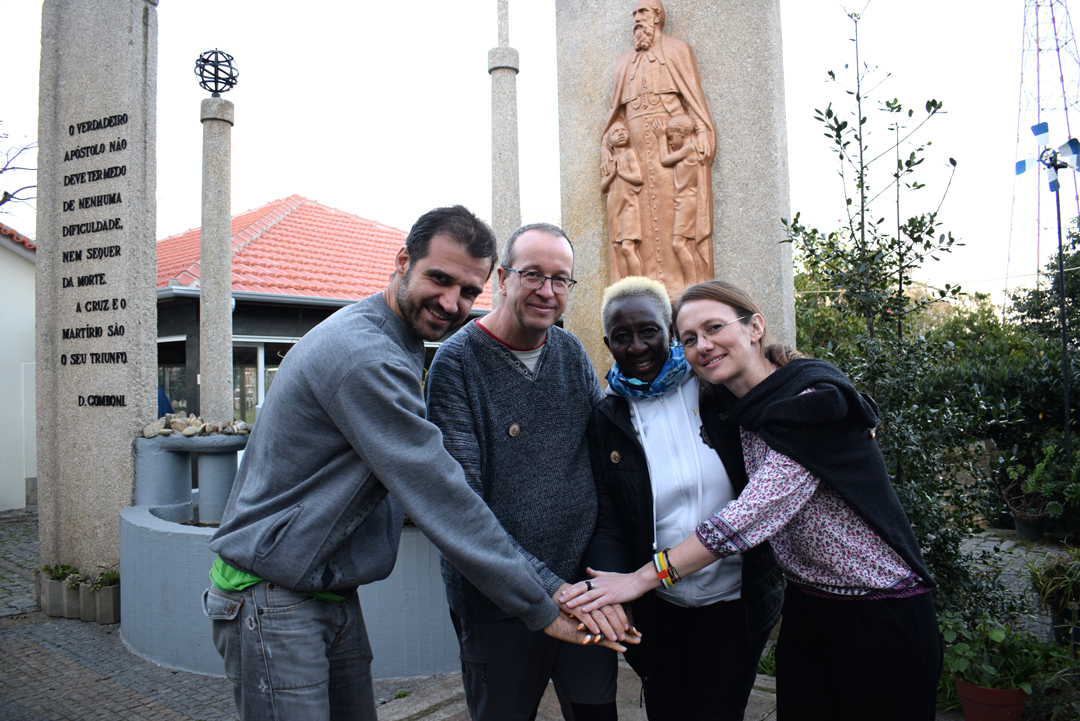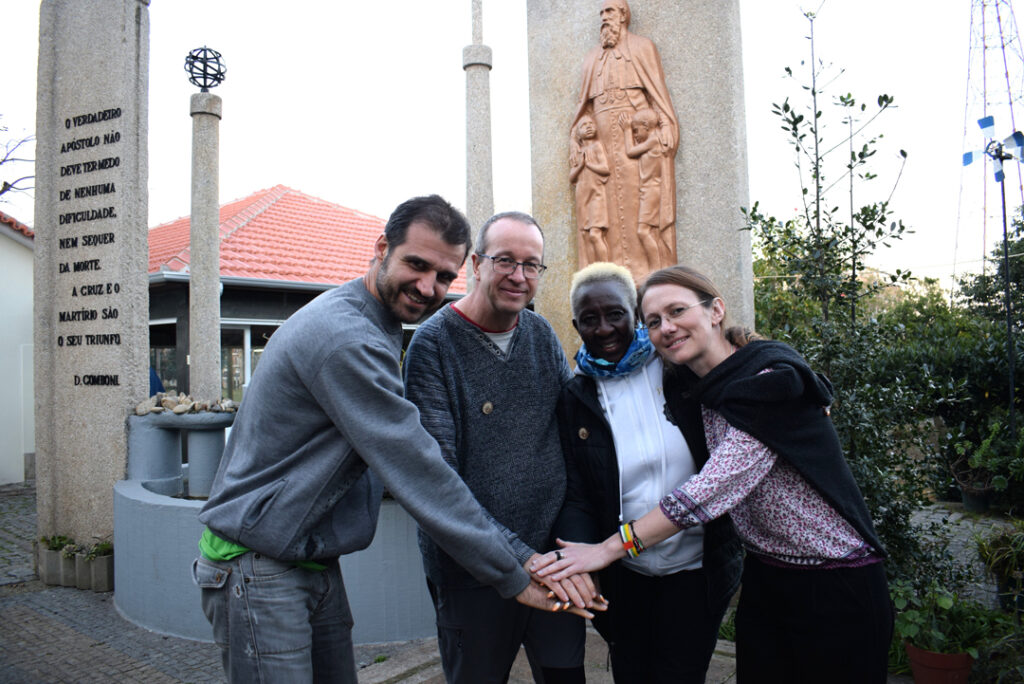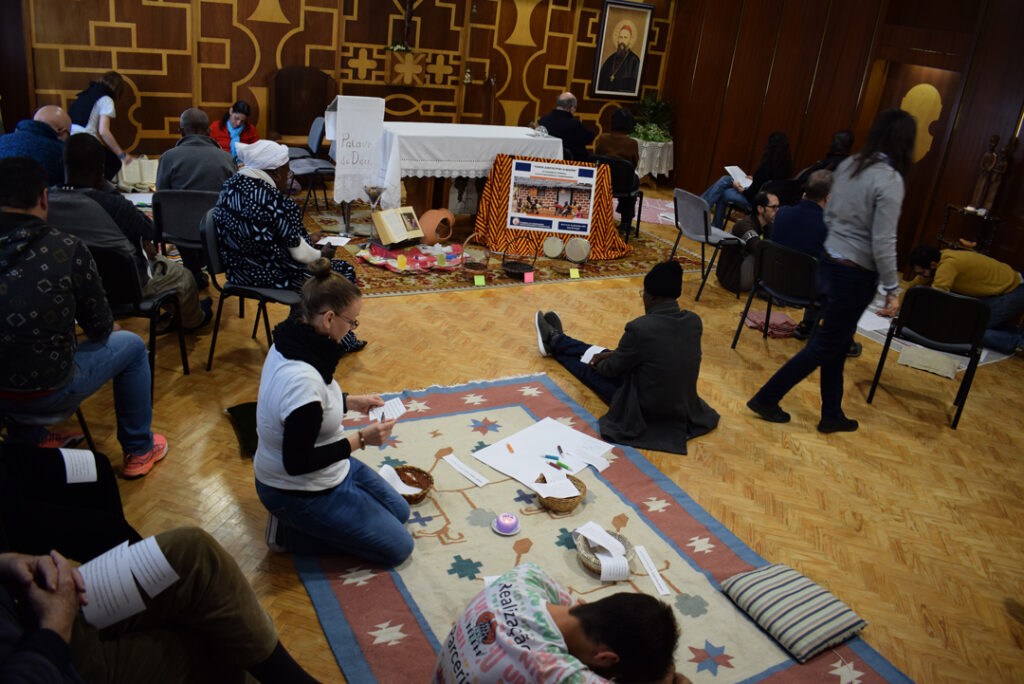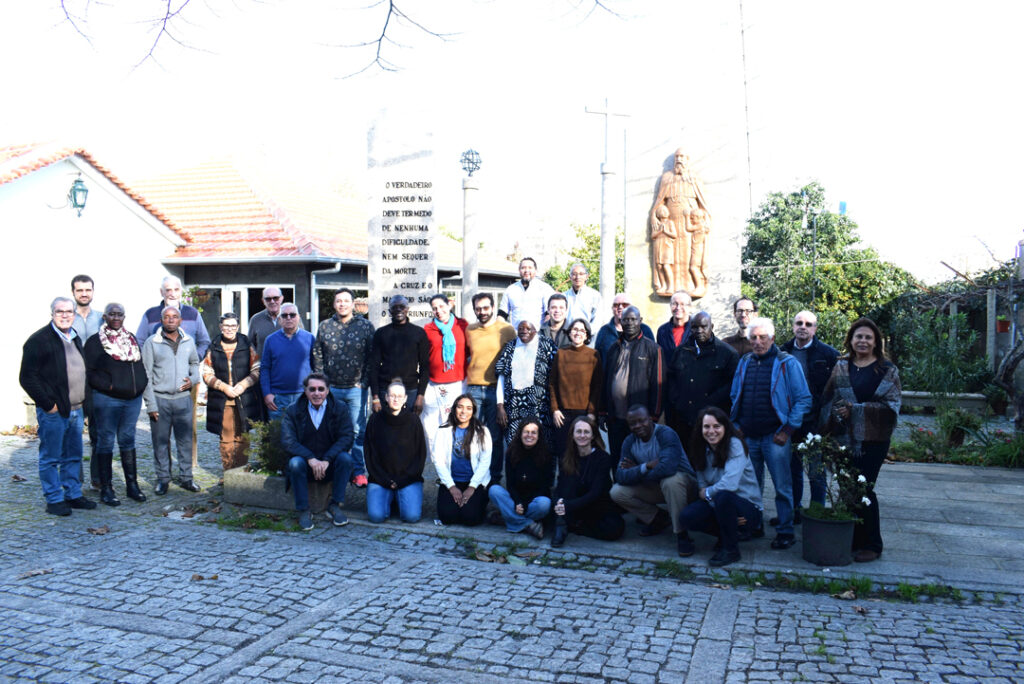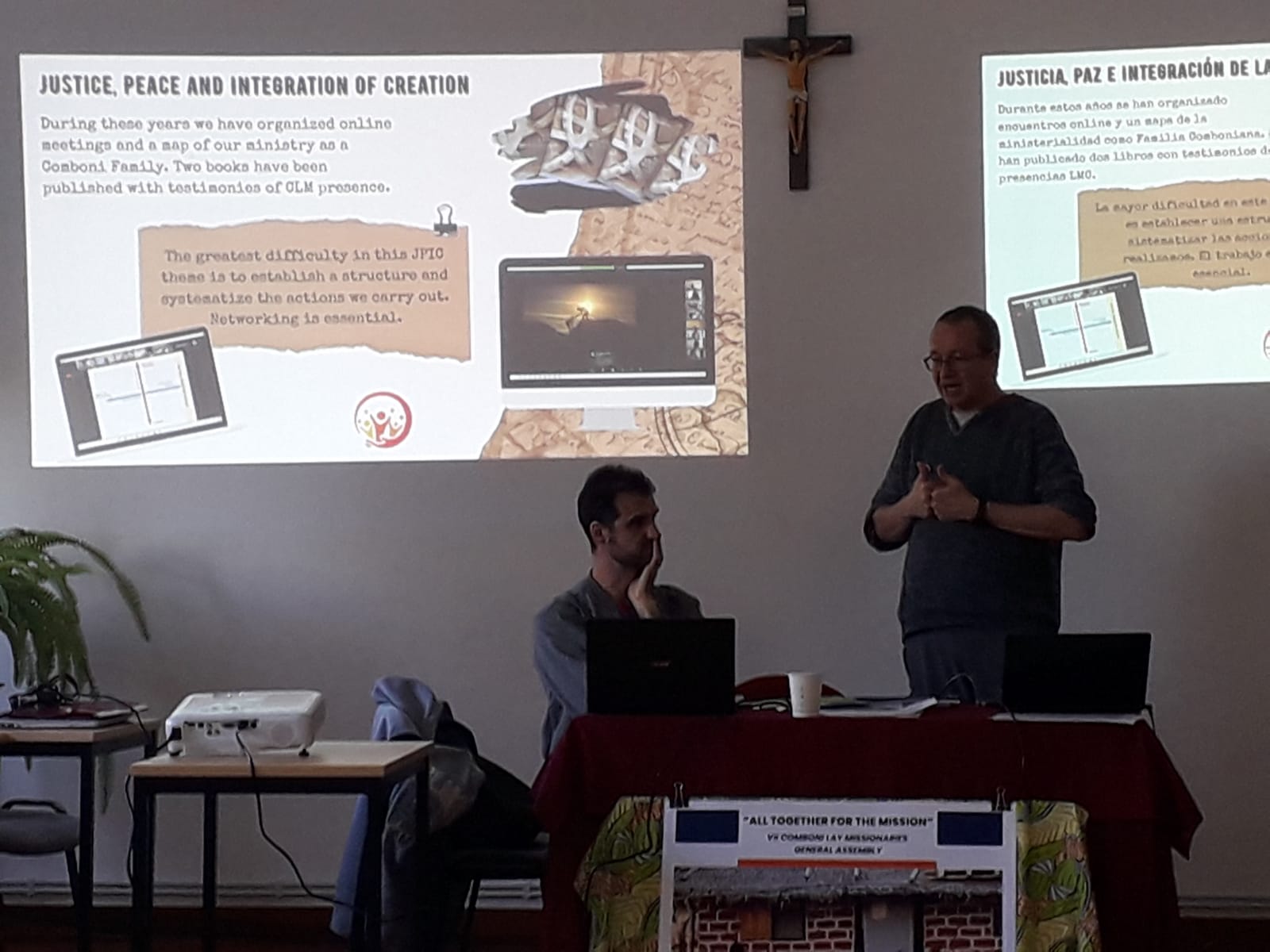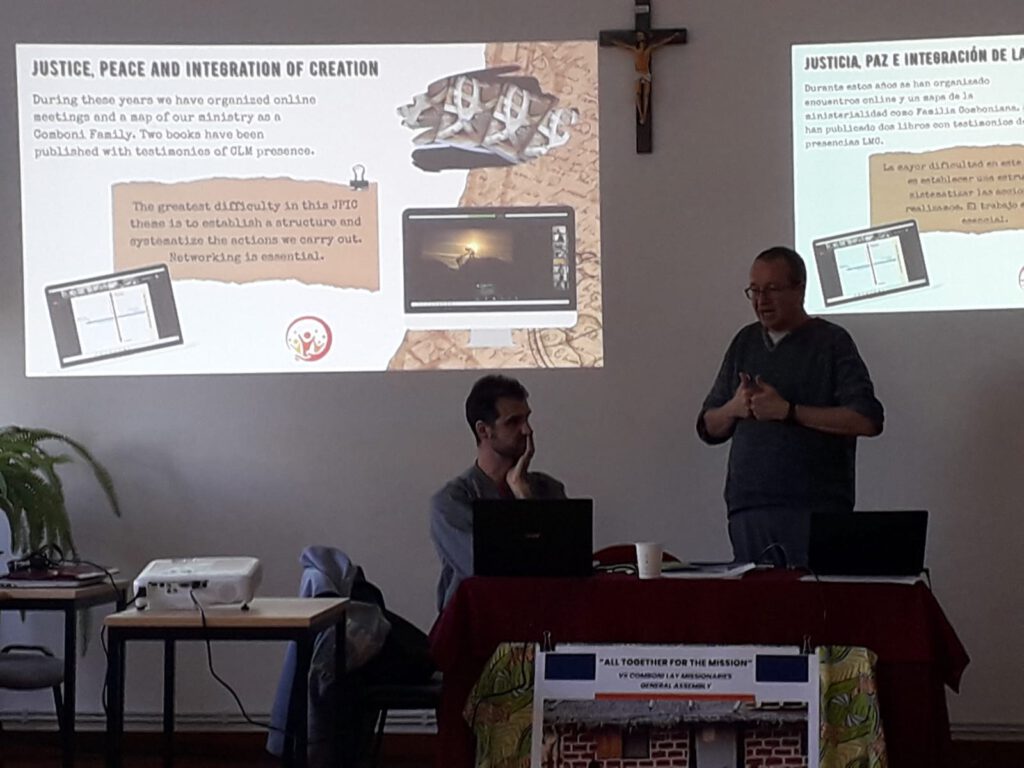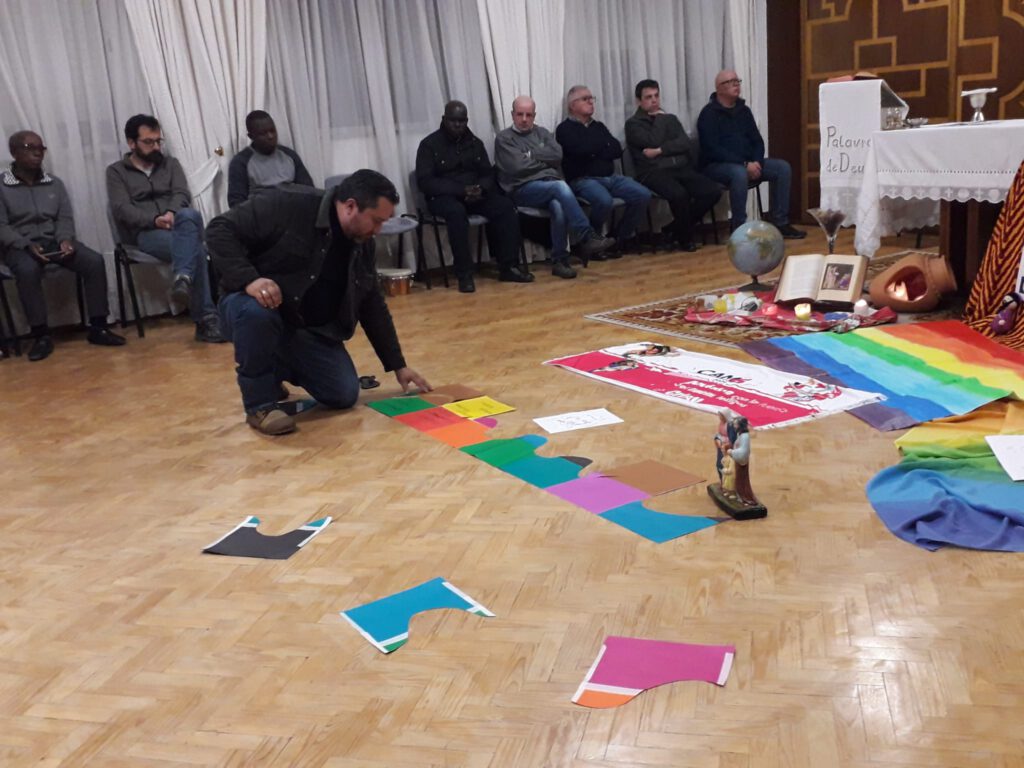December 15, 2024
On this date, the third Sunday of Advent, Gaudette Sunday, Sunday of Joy, International Comboni Lay Missionary Sunday, the readings of this Sunday invite us to rejoice, to be attentive but joyful because the Lord, our savior, is coming soon.
With the same joy in Costa Rica we gathered in the Parish of Our Lady of the Miraculous Medal, in Barrio Cuba, San Jose, with great enthusiasm, the CLM continue to grow internationally and here is no exception, since our candidate Jorge Arturo Zamora Viquez, a resident of Perez Zeledon, south of the country, took his commitment, becoming the second Comboni Lay Missionary in Costa Rica.
Ignacio Marin, Comboni Missionary, presided at this celebration, and together with the assembly, listened to the reading of the commitment of the now CLM Jorge, also taking the opportunity CLM José David Rojas made his renewal of commitment, then both and together with Father Ignacio proceeded to sign on the altar what was read as a sign of sealing this commitment to God Himself. Let us continue praying so that the owner of the Harvest continues sending workers to his fields willing to give everything to put their service, dedication, love, courage and effort in and for the Mission Ad Gentes.
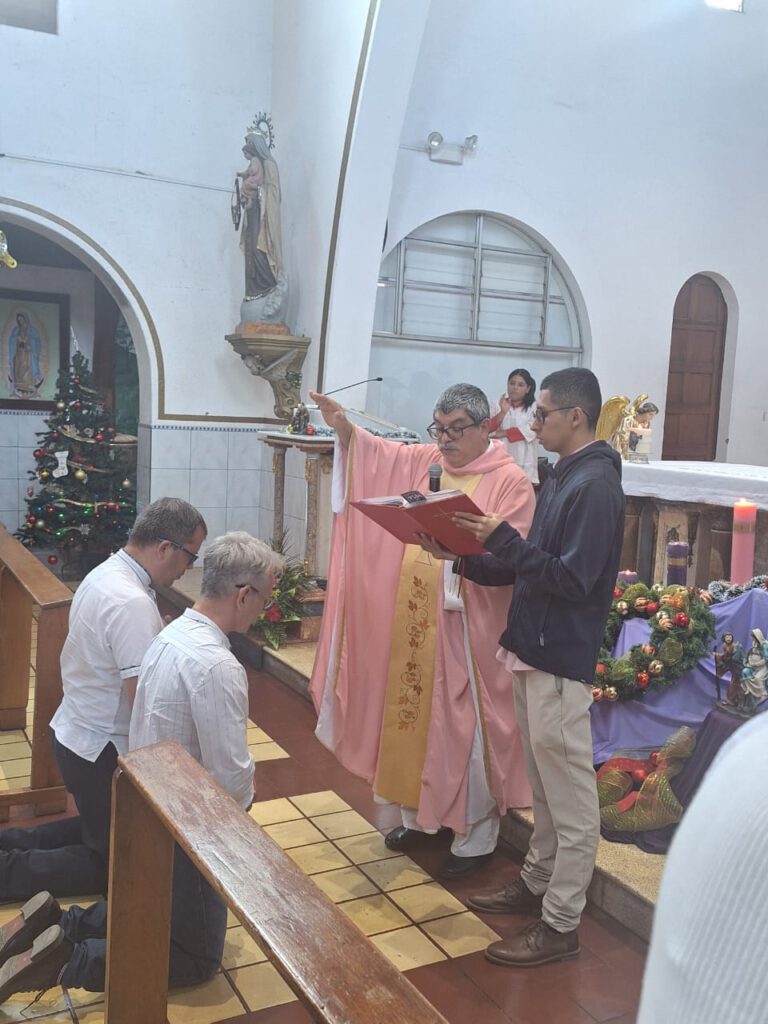
As signs of commitment, Brother Jesus, Comboni Missionary and advisor of the CLM in Costa Rica for the CLM, gave Jorge a ring as a covenant with God, a cross as a sign of the Christian and a rosary so that prayer will not be lacking in his life. After the Eucharist we went to the Martyrs of Uganda Seminary, in Sagrada Familia, San José, which is the center of our meetings and formations, to share lunch with some friends of the Mission.
In the meantime we continue working, forming ourselves, serving so that when we meet with the poorest and among the poorest, we can spread the same joy that invites us on the third Sunday of Advent, and that our testimony may serve as an example to bring many souls to the foot of the cross of that God of mercy and love.

CLM Costa Rica.




